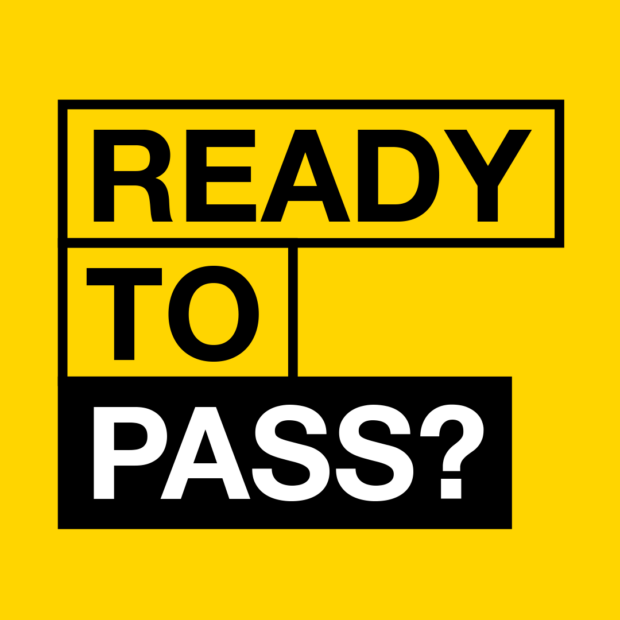
Following on from my last blog post, in which I told you about the changes we’re making to the ADI part 3 test, I’ve received a number of questions.
In this blog, I’ll address the most frequently asked questions and give you information on what you need to do to make sure you’re prepared for the changes being introduced in October 2017.
What will the impact be on training?
We’re making sure the training you receive, and the training you offer, is tailored to the specific learning need of the individual. So, if you’re teaching a candidate with dyslexia it’s important you’re able to adapt your style of teaching to suit their individual needs. For example, this could be changing how you give them directions.
If you’re training PDI’s or you’re currently training to be an ADI, you’ll need to make sure that the core competencies and lesson themes tested by the current part 3 test are still covered in your training. The conditions attached to your trainee licences (forms ADI 21T and 21AT) are still valid.
Role-play
Although we’re changing the way the ADI part 3 test is delivered, I still think role-play remains a valuable tool in helping you safely acquire and develop competence during the training process. It wouldn’t be appropriate for a new PDI to teach real pupils straight away, so, using a role-play scenario would be the best way for them to start developing their training skills.
However, once your training instructor thinks you’re ready to start teaching a real pupil, they’ll help you find someone suitable.
Should I be working to the National Standard?
Yes, it’s important preparation for you to look at the national standard for driver and rider training and the assessment form and accompanying guidance (in section 4) for the standards check. These set out what competence ‘looks like’ in each area. This’ll help better prepare you for the changes we’re making in October, and make sure you’re learning, or training people, on the right skills.
If you’re already in the process of qualifying, your instructor trainer will be able to advise you on what additional training and development you may need. They should be able to tell you how this will fit into the competencies you’ll need to show before applying for or taking the new test.
Are you still working with the industry?
Yes, I want to make sure the industry is kept informed on the progress we’re making to improve the process of becoming an ADI.
Last year, we conducted research to identify how well prepared instructor trainers and ORDIT organisations are to deliver the new training requirements. Many organisations told us that they’ve already started to change their processes for the new test.
So, today (20 April 2017) we’ll be sending out surveys to PDI’s, recently qualified ADI’s and instructor trainers which will close on 12 May 2017. The survey will help us understand how we can continue to work with and support the driver training industry between now and implementation. It’s an opportunity to provide us with your opinions on the revised test.
If you are a PDI, we’d like also like hear about how and why you chose your instructor trainer, which will help us improve our voluntary instructor trainer scheme (ORDIT).
Instructor trainer workshops
We’ll also be inviting instructor trainers to a workshop to give them an opportunity to discuss the changes with us in more detail. We’ll be able to answer any questions they might have and provide help for those still unsure about what changes are needed or how to make them.
How are you going to improve the standard of the voluntary instructor trainer scheme?
So, to support the changes we’re making to broaden training and help PDI’s to become successful ADIs we’re also planning to improve our existing voluntary instructor trainer (ORDIT) scheme. This will make sure trainers are delivering the highest quality training.
This’ll include closer monitoring of standards and performance. We’ll do this by conducting thorough reviews of training logbooks, which are used to monitor and record progress against the competences. We also want to make sure there’s more information out there to help future trainees make a more informed choice of trainer.
We’ll be discussing these proposals for ORDIT at the instructor trainer workshops we’re holding.
Keeping in contact with us
So, if you’re an instructor trainer and haven’t already made contact with us, it’s important that you do so now so that you can be sent the survey and be invited to the workshop.
You can contact us at Ordit@dvsa.gov.uk.

14 comments
Comment by Gary Fossey posted on
Mark, please advise whether and, if so, what amendments are being made to the Road Traffic Act 1988 as amended?
Comment by Chris (DVSA) posted on
Hi Gary,
No amendments are being made to the Road Traffic Act 1988, but the content of the ADI Part 3 examination (the Instructional ability and fitness test) is set out in regulations (The Motor Cars (Driving Instruction) Regulations 2005).
So these will be amended.
Thanks,
Chris
Comment by Steve Barber posted on
As have been a instructor for meany years I can see that your still not sure your selfs (DSA) how to teach never mind the ability assess the the instructors. I'm dyslexic, the practical test dose not pose much problem it's the theory test.
I wish you would listen to real instructors in the field and not the ones just doing the job for the money.
Comment by mark posted on
what about the LGV NIR INSTRUCTORS what effect will these changes have on us
Comment by Chris (DVSA) posted on
Hi Mark,
The changes to the ADI part 3 won’t affect the qualifying process for the NRI LGV instructor register.
Thanks,
Chris
Comment by Jonathan bright posted on
Hello, where are the workshops for trainers being held please?
Is there a cost involved and how many days are the courses covering?
Comment by Wayne Edwards posted on
Very well explainec
Comment by David Byrne ADI posted on
As part of my own ADI teachings I passed the NVQ level 4 in post 16 education, much of what you are changing is covered on this course, knowing about your learner and their individual learning needs, you should take a look at 'Maslows Heirachy of needs' a pyramid of elements that your learner needs to have in place BEFORE any learning can actually take place in ANY subject that you are teaching.
Comment by David Dodds posted on
My Training Instructor does NOT find me pupils(learners).
Comment by Chris (DVSA) posted on
Hi David,
ADIs will of course be running a business when they qualify, so we want to encourage PDIs and their trainers to consider how they would source a pupil from day one.
The pupil required for the part 3 test doesn’t have to be a learner driver. It can be a full licence holder seeking driving development. So, it can be a friend or family member.
Thanks,
Chris
Comment by Carol gledhill posted on
How will this new driving test be put to someone who is profoundly deaf.i teach the deaf to drive and can not see how this can be put to someone who has no hearing.
Comment by Chris (DVSA) posted on
Hello,
The new test delivery will be no different for profoundly deaf candidates. The ADI should in the first instance ensure the test booking team are made aware of the special need. Extra time may be given to the examiner so that they can ensure the candidate fully understands the requirements - especially if a BSL is accompanying.
Secondly, on the day of the test, the ADI should discuss the techniques used during lessons to relay instructions to the pupil. The examiner will do their best to replicate the same process. Regarding the sat nav element, this is both visible and vocal. So the on screen directions should be acknowledged and followed by implementing the MSPSL routine as per the training received while on a lesson.
Thanks,
Chris
Comment by Bernie Williams posted on
Hi, I'm not qualified as such to teach Pdi's although I am a fully qualified Adi and have trained several Pdi's through to passing their exams.
Thank you for this blog.
Very interesting.
Bernie
Comment by Mr Charles Kilindu posted on
Why PDI's have to for 2 years and start the all application process again if they fail their part 2 test or part 3 test three time instead to contineu to their tests until to qualify to be ADI ? I don't think this is good and fair for PDI's.